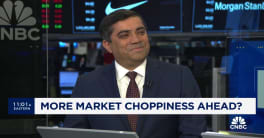Current Rate: 2.00%
Next Rate Decision: Aug. 5
Market Expectations: The OIS implied rate suggests markets are 8% priced in for a 25bp hike at the next meeting, and are pricing in a 28% chance of a quarter-point hike at the September meeting.
The Federal Open Market Committee (FOMC) is once again expected to leave rates where they are as it continues to assess the extent of recent signs of weakness in the U.S. economy.
Julian Jessop of Capital Economics said that given the Fed didn't move on interest rates in June, the odds of a change in rates now is even less likely. "The renewed turmoil in financial markets and the weakness of economic activity means that any window that had opened for raising rates is now firmly closed again," he noted.
However, Jessop said there is a chance Charles Plosser will join fellow FOMC hawk Richard Fisher in voting for an immediate rate hike. "Plosser's decision to vote with the majority in late June seemed to be mainly due to a matter of timing and he recently warned that rates needed to rise 'sooner rather than later.'"
Since the FOMC's last meeting, data have shown that headline inflation accelerated to a 17-year-high of 5.0% in June, but that the inflation outlook has improved with a $20 fall in the price of oil.
In an interview with Bloomberg Television on Friday, former St. Louis Fed Chief William Poole called the better-than-expected nonfarm payrolls figure released on the same day a "marginal surprise," adding that weakness in the labour market could keep the Fed on hold for some time. He also warned that the U.S. was "gradually building in a longer-run inflation problem that could come to haunt us next year."
U.S. nonfarm payrolls declined for the seventh straight month in July, falling below expectations by a total of 51k jobs, according to the Bureau of Labor Statistics. Declines in the two previous months were upwardly revised by 26k, putting the three-month average of losses at -50k per month.
In an interview on CNBC Thursday, former Federal Chairman Alan Greenspan warned that if the Federal Reserve is given a role to oversee the financial system, it could undermine its credibility. Greenspan said the U.S. is facing a "once in a century crisis," and warned that the U.S. is teetering on the brink of recession.
On Wednesday, the Federal Reserve announced that in addition to its $75 billion, 28-day Term Auction Facility (TAF), the Fed will also be conducting a $25 billion, 84-day TAF to address the ongoing "fragility" of the financial system. The Fed also said it would be extending its extraordinary lending to late January 2009 "in light of continued fragile circumstances in financial markets."
Outgoing Fed Governor Frederic Mishkin said Monday the Fed should adopt an inflation target and extend its forecasting horizon to five years. "By establishing a transparent and credible commitment to a specific numerical inflation objective, monetary policy can provide a firm anchor for long-run inflation expectations, thereby directly contributing to the objective of low and stable inflation," Mishkin said, emphasizing that his comments reflected personal views and not those of the FOMC.
Testifying before the House Finance Committee on July 24, New York Federal Reserve President Tim Geithner said final judgments on regulatory reform should be reserved until the housing crisis ends. "The U.S. and global financial systems are going through a very challenging period of adjustment. The critical imperative today is to help facilitate that adjustment and to cushion its impact on the broader economy." Geithner commented that the financial system will take time to recover and that the current regulatory system is no longer appropriate.
By Stephen Huebl and edited by Nancy Girgis







